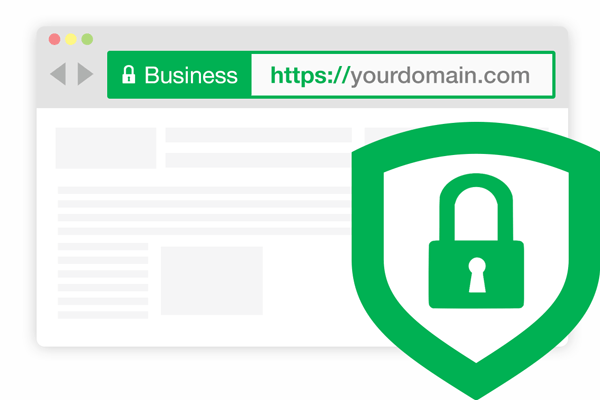Description
A Domain Validation (DV) Certificate confirms that the individual or organization requesting the certificate controls the domain name. However, it does not authenticate the identity or organization behind the website, making it the least stringent type of SSL/TLS certificate compared to others like Organization Validation (OV) and Extended Validation (EV) certificates. The validation process for DV certificates involves checking the domain’s ownership rather than the legitimacy of the organization behind it.2. How it Works:
- Encryption: Like all SSL/TLS certificates, DV certificates encrypt data sent between a web browser and a web server, ensuring that sensitive information (like login credentials or payment details) is transmitted securely.
- Validation: The validation for DV certificates is usually done through automated checks. The CA verifies that the person or entity requesting the certificate controls the domain name by sending a verification email or requiring the user to add a specific DNS record or file to the web server.
- No Business Information: The DV certificate doesn’t display any business information on the website. It will only show the domain as secure, with a padlock icon in the browser.
3. Process of Obtaining a DV Certificate:
- Request: The website owner submits a request to the Certificate Authority (CA) for a DV certificate.
- Domain Ownership Verification: The CA will verify ownership of the domain. This can be done through methods such as:
- Email Verification: The CA sends an email to the domain’s registered email address (such as admin@domain.com). The requestor must respond to this email to confirm domain control.
- DNS Verification: The CA asks the user to add a specific DNS TXT record to the domain’s DNS settings.
- HTTP Verification: The user is instructed to upload a specific file to their website’s root directory.
- Certificate Issuance: Once the CA verifies the domain ownership, they issue the certificate.
- Installation: The website owner installs the certificate on the web server to enable secure connections.
4. Key Features and Specifications:
- Encryption Type: Provides encryption for data between the server and the client. Typically, the encryption level used is 128-bit or 256-bit, which is considered highly secure.
- Validation Process: The DV certificate performs only domain ownership validation, with no checks for the organization or business behind the website.
- Trust Indicators: When a browser connects to a site with a DV certificate, users see a padlock icon in the address bar. There is no indication of the organization or the entity behind the website, unlike OV or EV certificates that display the organization’s name in the address bar.
- Speed of Issuance: DV certificates are issued quickly—often within minutes after the domain verification process is completed.
- Browser Compatibility: DV certificates are compatible with all major browsers, including Chrome, Firefox, Safari, and Internet Explorer.
- Certificate Length: Typically issued for 1-2 years, with renewal options available. However, some Certificate Authorities offer certificates for shorter or longer durations.
- Cost: DV certificates are generally less expensive than OV and EV certificates. Some Certificate Authorities also offer free DV certificates (e.g., Let’s Encrypt).
- No Business Identity Information: DV certificates do not show or verify any business details, only the domain name. Therefore, it is not suitable for sites that require higher levels of trust, such as eCommerce sites or financial services.
5. Pros of DV Certificates:
- Fast Validation: The issuance process is automated and typically takes only a few minutes.
- Affordable: DV certificates are the most cost-effective option compared to OV and EV certificates.
- Basic Encryption: It provides basic encryption, ensuring that user data (such as login credentials and personal information) is protected during transmission.
6. Cons of DV Certificates:
- Limited Trust: Since it doesn’t validate the identity of the website owner or organization, users may not trust the website as much, especially if they expect to enter sensitive data.
- No Organization Information Displayed: Unlike OV and EV certificates, a DV certificate doesn’t display business details, which may lead to lower confidence in some use cases.
7. Use Cases:
- Personal Blogs: Websites where security is important, but the identity of the website owner does not need to be publicly verified.
- Non-transactional Websites: Websites that do not handle sensitive information, such as informational websites or portfolios.
- Small Business Websites: Businesses that only need basic encryption but don’t require higher levels of trust (such as small blogs or informational sites).





